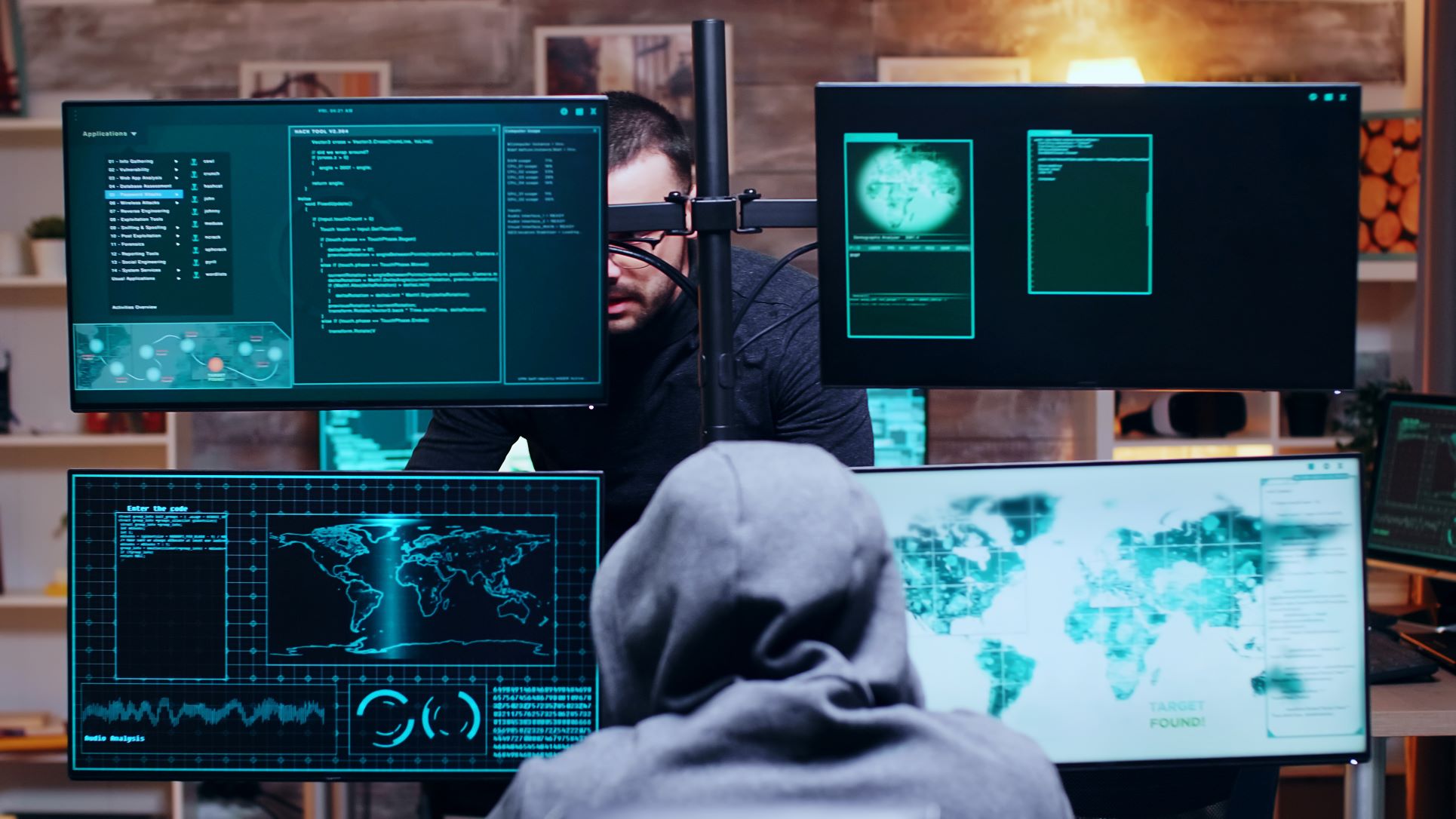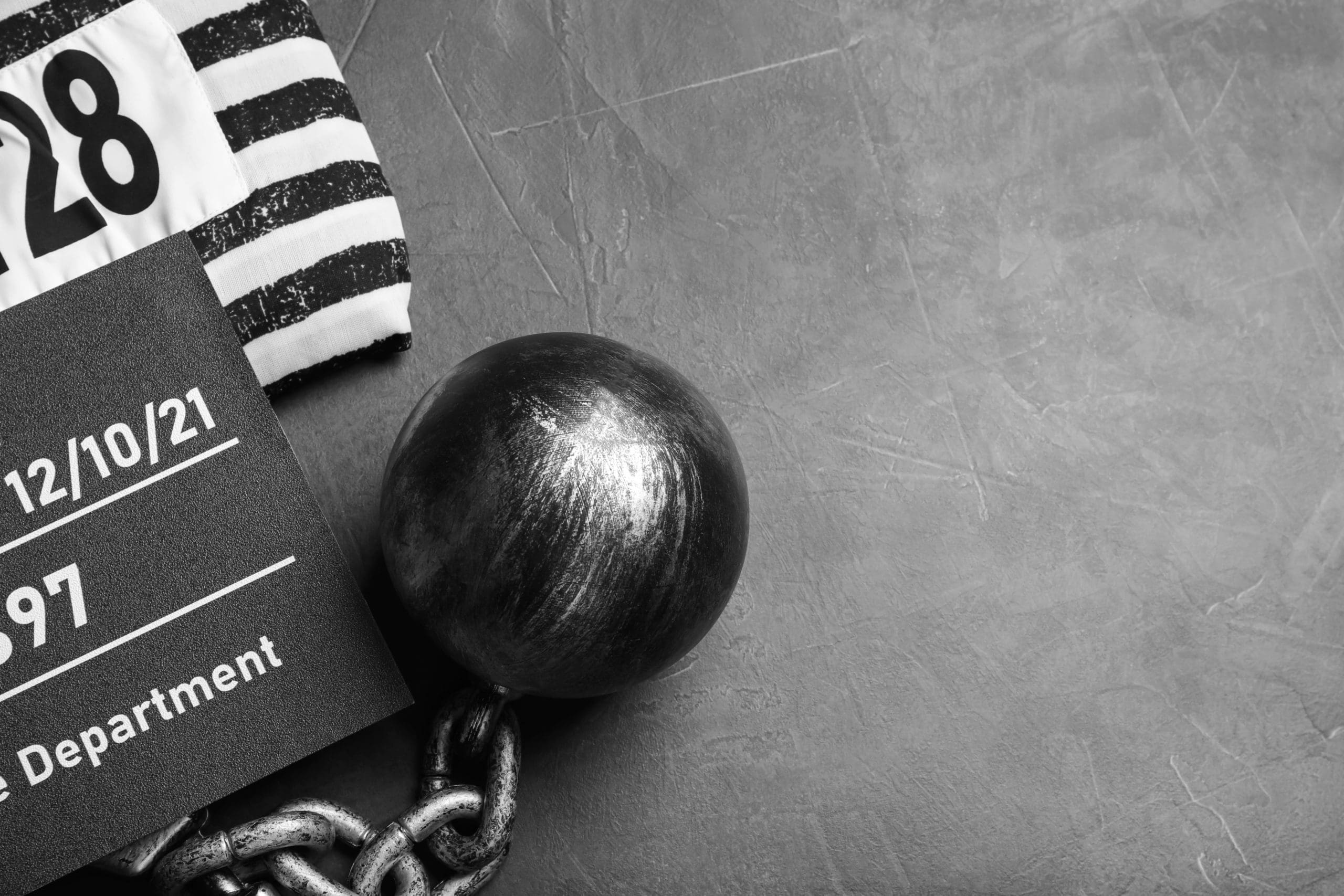Dark Web Monitor: Is My Info on the Dark Web?

A dark web monitor scans through the surface level with dark web monitoring to ensure that your information isn’t used illegally. In our guide below, learn more about dark web monitoring and the dangers of compromised credentials.
If you’ve ever used dark web monitoring before, you’ll know how dark web scans reveal some interestingly scary information on dark web sites. These tools perform dark web scans on search engines, dark web pages, dark web forums, and other dark web sites and dark web sources to ensure you are safe from data breaches to avoid the risk of identity theft.
A dark web monitoring service is designed to scan through search engines to find potentially dangerous data breaches that could damage your brand reputation or, worse, steal and use your personal information illegally.
Before learning about how dark web monitoring services work, let’s first look at the dark web or deep web, and what dark web monitoring is.
What is the Dark Web?
The dark web, or deep web, is a part of the Internet that is not accessible through traditional search engines or web browsers. It is a hidden network of websites and online services requiring specialized software and access credentials.
The dark web, or deep web, is not visible to the general public and often involves illegal activity. The dark web is home to various services, from social networks to illegal drug markets. It is also home to various activities, from buying and selling stolen credit card numbers or even a social security number to hiring hitmen.
The dark web, or deep web, is an anonymous network, meaning users can remain hidden from law enforcement and other authorities. The dark web is often associated with criminal activity, but it is also used by journalists, political activists, and whistleblowers to communicate without fear of persecution.
It is also a platform for individuals to express their opinions without fear of censorship. The dark web, or deep web, is dangerous, and those who use it should take the necessary precautions to stay safe.
It is important to remember that the dark web is not completely anonymous, and law enforcement has been known to track and apprehend criminals who use it. Despite its reputation, the dark web is not all bad.
It can be used for legitimate purposes, such as buying and selling goods, communicating with like-minded individuals, and finding information. However, it is important to remember that the Dark Web is risky and should be used with caution.
Dark Web Monitoring Tools
Using tools to perform data monitoring on the dark web. These tools help ensure that your critical data is not loosely displayed online for bad actors to use.
Why A Dark Web Monitoring Tool Is Important
This tool is important, especially if you are very involved in the digital world. Aside from your business information, this can have a huge effect on your personal reputation and safety.
What is Dark Web Monitoring?
Dark web monitoring is becoming increasingly popular with businesses, organizations, and individuals. This monitoring service helps keep sensitive data, like credit monitoring, identity fraud, and other information, safe by scanning the dark web for malicious activity.
The dark web is a part of the internet that is not indexed by search engines and is used by cybercriminals to hide their activities. Dark web monitoring scans the dark web to identify any activity that could be a potential threat.
This includes stolen credentials, malicious activity, and any data that has been illegally obtained. Suppose you don’t use a password manager or have a strong password for your online account when using the surface web. In that case, there is a high chance of your personal information, like your credit monitoring, resulting in a data breach.
Suppose bad actors gain access to your personal information on the surface web. In that case, this will allow them to potentially access more dangerous dark web data like credit bureaus’ files, credit reports, and credit card statements. ID theft gives them access to bank account numbers or other stolen data.
A dark web monitor is extremely important to ensure that your website and personal info on top of phone numbers and your social security number remains protected.
Why A Dark Web Monitor is Important
A dark web monitor system is threat protection for the surface and the dark web through a regular scan routine. Aside from the search engine, these include security teams that employ threat protection to fight against ID theft and potentially find out the identity thieves are using.
With dark web monitoring, organizations can protect their data and assets from unauthorized access, breaches, and other threats. Dark web monitoring is essential for any business or organization that stores sensitive information.
It can help protect against data breaches, fraud, and identity theft. It can also help identify any malicious activity that could put the business or organization at risk. Dark web monitoring can also be beneficial to individuals.
It can help protect their personal information and financial data from potential threats. It can also help identify any malicious activity that could be targeting them. Dark web monitoring is an important part of any security strategy.
It can help protect data and assets, as well as help identify potential threats. Organizations and individuals should consider implementing dark web monitoring to keep their information safe.
Dark web monitoring is the process of looking for information on the dark net, including data breaches or any identity theft situations that have been done. It scans the deep and dark web for sensitive data and looks for dark web threats on identity theft, bank accounts, and all the personal information one could have.
Dark web surveillance is a form of dark web monitoring work where there is constant dark web scanning to look for potential threats like identity theft or a data breach on your bank account or other important personal information. While identity theft is common on dark web searches throughout the world wide web, there are more pressing matters in terms of online security.
Actions that Lead to Data Breaches
The dark web is scary and full of malicious actors looking to exploit people’s personal information. Unfortunately, many people are unwittingly exposing themselves to the risk of having their information stolen and placed on the dark web.
While a dark web monitor does a dark web scan past the surface web for continuous monitoring of potentially stolen information. Digital shadow search only identifies threat actors and vulnerabilities, not ways to avoid account takeover or breached credentials from suspicious activity.
Here are five common activities that can lead to your data being stolen and placed on the dark web:
1. Not Updating Software
Outdated software is one of the most common ways hackers can access your data. Many people don’t realize that software updates are there for a reason. They often contain important security patches that can protect your information from being stolen. If you’re not keeping your software up to date, you’re making yourself vulnerable to hackers.
Sometimes malicious software happens when you do not update the software on your mobile devices or computer. Digital shadows searchlight uses automated scanners to determine which apps are vulnerable, but generally, it is better to update your apps to protect your login credentials automatically.
2. Weak Passwords
Weak passwords are one of the most common ways hackers can easily access your accounts. Use strong passwords with a mix of numbers, symbols, and upper and lowercase letters. Using a password manager to keep your passwords secure is also a good idea.
Protecting your phone numbers, IP addresses, social security numbers, intellectual property, trade secrets, and other key personnel info is important, but not as much as protecting your passwords from being stolen. Reused passwords make you extremely vulnerable online. Although sites may offer false positives on the strength of your password, especially after a random online sale, it is better to use different passwords for different sites.
3. Poor Social Media Habits
Social media is one of the biggest arenas for hackers to target your information. Be sure to be mindful of the information you’re sharing on social media and keep your privacy settings up to date.
4. Falling for Phishing Scams
These scams are one of the most common ways hackers can access your information. Be wary of any suspicious emails or links, as they could be phishing attempts. If you’re after a sale online, make sure you purchase from a legitimate seller and never give out your credit card numbers to any random site.
5. Not Using a VPN
If you’re frequently using public Wi-Fi networks, it’s important to use a virtual private network (VPN). A VPN will encrypt your data and protect it from being intercepted and stolen by hackers. If you don’t have a VPN, use an Onion router or the Tor browser to protect your searches.
Protecting your information is extremely important, as it can end up on the dark web if it’s not protected properly. Make sure to stay up to date on all of your software, use strong passwords, be mindful of your social media habits, be wary of phishing scams, and always use a VPN when using public Wi-Fi networks.
What Can Bad Actors Do With Your Dark Web Data?
Data theft is a major issue for individuals and businesses, with sensitive information often being transferred through the dark web. The dark web is a part of the internet that is not accessible via regular search engines and is home to various illegal activities, including the sale of stolen information.
Here are ten potential uses of stolen data obtained from the dark web:
1. Identity theft
Stolen info from the dark web can be used to open fraudulent accounts, steal funds, and commit other forms of identity theft.
2. Credit card fraud
Stolen credit card numbers and other financial information can be used to make fraudulent purchases.
3. Extortion
Stolen info can be used to threaten victims, such as by threatening to release sensitive information to the public if a ransom isn’t paid. Extortion of this type is sometimes referred to as doxing.
4. Phishing
Stolen info can create convincing phishing emails to extract additional data from victims.
5. Spam campaigns
Stolen info can be used to send out large volumes of unsolicited emails containing malicious links or malware.
6. Malware distribution
Stolen info can be used to spread malicious software to vulnerable systems.
7. Social engineering
Stolen info can be used to access sensitive systems or deceive people into giving up additional data.
8. Botnets
Stolen info can be used to build and control a network of infected computers, known as a botnet, which can be used for various malicious activities, such as DDoS attacks.
9. Data monetization
Stolen info can be sold on the dark web for a profit.
10. Credit repair fraud
Stolen info can be used to falsify credit reports and improve a person’s credit score.
How to Protect Your Data from the Dark Web
You can do a few things to ensure your data’s safety from the dark web. Here are some healthy practices you can follow.
1. Use strong and unique passwords for all your online accounts
Using strong and unique passwords for all your online accounts is the most effective way to protect yourself from having your information stolen on the dark web. Create passwords at least eight characters long and include a mix of upper and lowercase letters, numbers, and symbols.
2. Limit what personal information you share online
When using social media like Pinterest, Facebook, or Twitter, limit the amount of personal information you share. Don’t share your address, phone number, or other sensitive information.
3. Use two-factor authentication
Enable two-factor authentication on all of your online accounts. This adds an extra layer of security that requires you to enter a code sent to your phone or email address before you can log into an account.
4. Monitor your credit report
Check your credit report regularly to look for any suspicious actions. If you notice anything out of the ordinary, contact the credit bureaus and take action to correct it.
5. Be careful when shopping online
Be sure to only shop at websites you trust and use secure payment methods. Never enter your payment details on a website unless encrypted with a secure connection (look for the “https” in the address bar).
6. Use a VPN
A Virtual Private Network (VPN) will encrypt your data and hide your IP address, making it harder for criminals to track you online.
7. Use secure Wi-Fi networks
Use a secure connection when using public Wi-Fi networks (look for the “HTTPS” in the address bar). Avoid using open or unsecured networks if possible.
8. Use anti-virus software
Install it on your computer and keep it up to date. This will help keep bad software from infecting your system and stealing your data.
9. Use secure web browsers
Use a secure web browser like Google Chrome or Mozilla Firefox. These browsers are designed with security features to help protect your data.
10. Be aware of phishing
Be aware of these scams and be wary of any emails or links you receive from unknown sources. Never open attachments or click on links from suspicious emails.
Protect Your Info from the Dark Web
The dark web can be a scary place that’s extremely difficult to navigate through. Need help searching and protecting your data not just from the surface web but also the dark web? Sign up now, and let’s get started protecting your data from the hands of bad actors.





